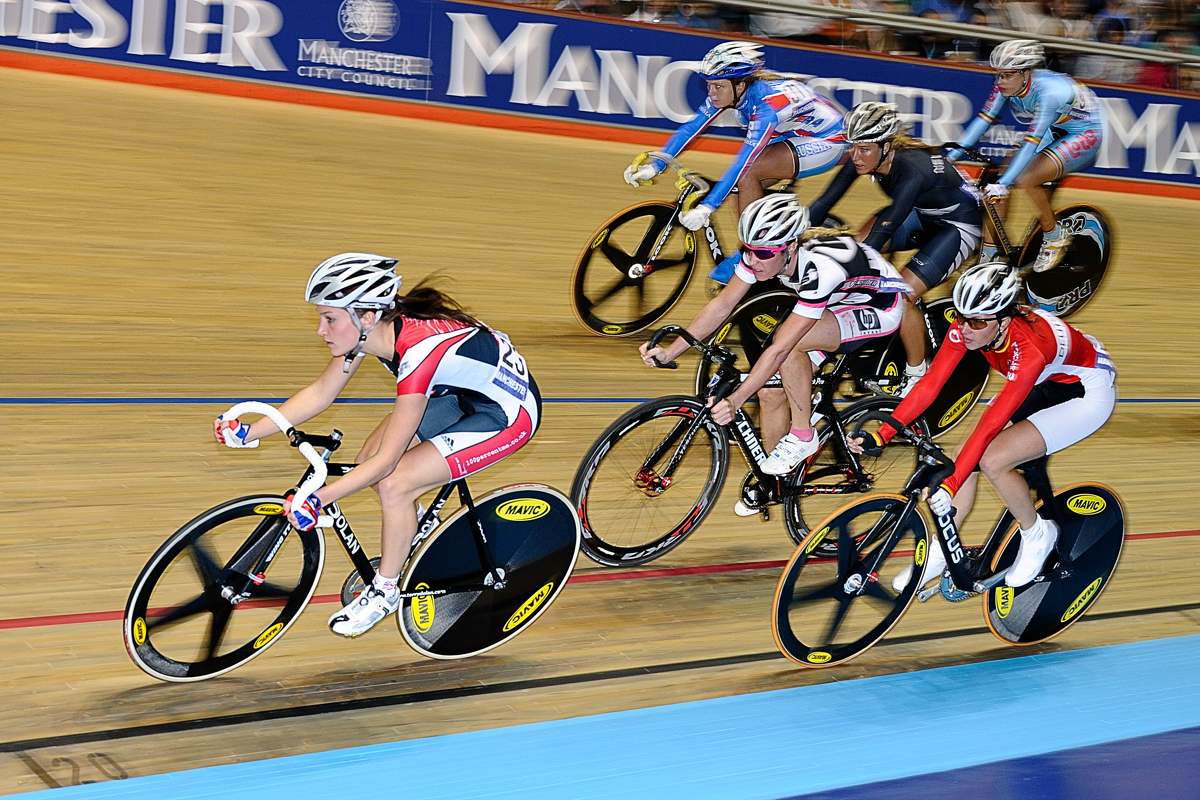
This weekend sees the return of the National Track Championships to the National Cycling Centre in Manchester for the first time since 2020. Olympic and Paralympic hopefuls will go head to head against the future stars of the sport ahead of the summer games in Paris.
The Velodrome became the home of British cycling in 1994, but Manchester has had a long and successful history with the sport dating as far back as the late 1800’s and the invention of the earliest bicycles or velocipedes as they were once known.
In 1934, track cycling was the only event in the British Empire Games to take place outside London, being held at Manchester’s Fallowfield Athletic Stadium and Velodrome, which shut down in 1975.
With the dominance of homegrown talent such as Wilf Higgins and Jack Sibbit, headlines in the newspaper declared that in the world of cycling it was ‘Manchester vs The Rest of the World’.
Manchester Wheelers Cycling Club was established in 1883 and has become the most successful cycling club in Britain, producing several World and Commonwealth Champions over the years, from Reg Harris in the 1940’s to Paul Curran in the 80’s. The latter returns to the track this weekend as Derny rider, which acts as pace-maker for races.

Manchester Wheelers held their race meets at the Fallowfield track, attracting elite cyclists from each corner of the globe.
In recent history, Manchester cemented its status as a world-class cycling hub at the 2002 Commonwealth Games.
The games were the largest multi-sport event that the UK has hosted since the Olympics in 1948.
The National Cycling Centre opened in 1994 and was the UK’s first Olympic-standard indoor velodrome track.
The slogan of the Commonwealth Games was ‘Count Yourself In’ – the organisers wanted the event to be as inclusive as possible and the velodrome has kept that philosophy going forward.
It is one of the World’s busiest venues of its kind and welcomes novices and youth riders as well as the professionals.
It was extended in 2010 with the addition of the UK’s first indoor BMX Centre.
The venue is credited with kickstarting the careers of modern champions such as Jason Kenny and Jason Queally.
Kenny, a seven-time Olympic gold medallist, trained on the track as part of the Eastlands Velo youth team, while Queally took part in taster sessions here before becoming Olympic champion just four years later.
In the 2012 Olympics, its impact on the world of cycling was visible for all to see. As the Manchester Evening News reported at the time: “If the Velodrome was a country, it would stand eighth in the overall London 2012 medal table.”
